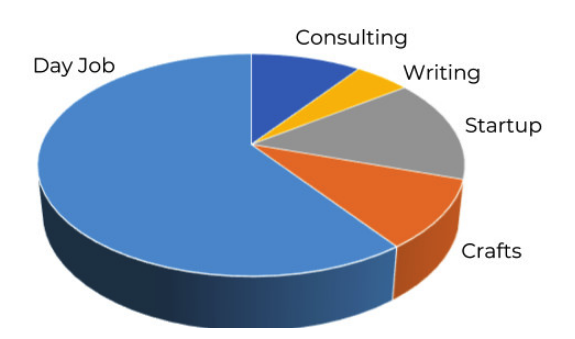Add AI to Your Career Search

Unless you’ve been living under a digital rock, you’ve heard about Artificial Intelligence (AI) tools like OpenAI’s ChatGPT and Anthropic’s Claude. These software tools allow you to write “prompts,” suggestions for actions you want the software to take (“Write me a Christmas carol in the style of Beyonce:), and they will type out something that resembles your suggestion. (Well, ChatGPT will, but Claude won’t, because it refuses to copy someone’s style or work.)
These tools can be a tremendous help for many steps in a career change or job search, from offering resume tweaks to generating cover letters. But one especially helpful activity can be to use these “Generative AI” programs to suggest ideas for work options once you have done some of your personal self-inventory.
Here’s how it works. Once you have taken the eParachute Flower Course, you will have a wide range of different information about yourself, including your transferable skills, your special knowledges, and your preferred people environment. You can paste all of this information into Claude or ChatGPT, and then ask the software a series of questions.
- - What are ten different jobs I might be interested in?
- - I really want to make sure I can use my favorite skills in my ideal job. How would that change that list of jobs?
- - I’m interested in learning more about the first job in the list of suggestions. What are the top five tasks that someone in that job performs?
- - Of the ten jobs suggested, which one takes the least amount of formal training before someone can start that work?
- - My three top special knowledges are (for example) Engineering, Agriculture, and Space. What kinds of jobs would use that intersection of knowledges? (The tractor company John Deere has an autonomous tractor guided by satellites. I’m sure they’d want to talk to you.
(The eParachute.com app can give you ideas for jobs after a short exercise using cards, but the list is based on the O*NET Database, which lists 1,000 jobs. By doing the eParachute Flower Course, you will have more information about yourself, and therefore you can get more options for jobs by using one of the GenAI tools.)
These tools are not a replacement for an actual human career coach, who can help support you with empathy and creative strategies. But think of GenAI programs as an additional tool in your toolkit for a job search or career change.





.jpg)

